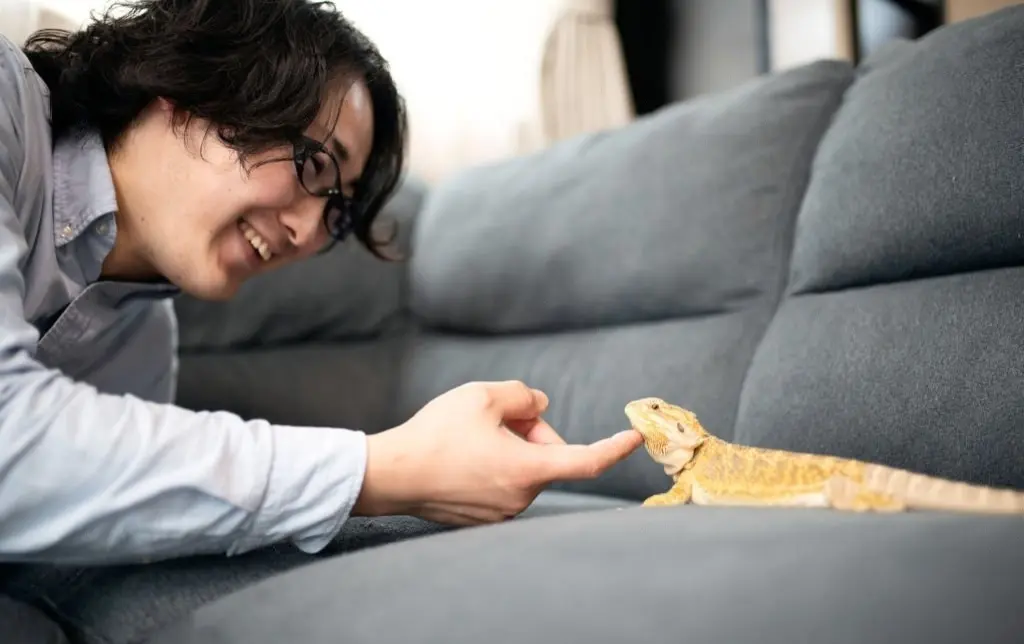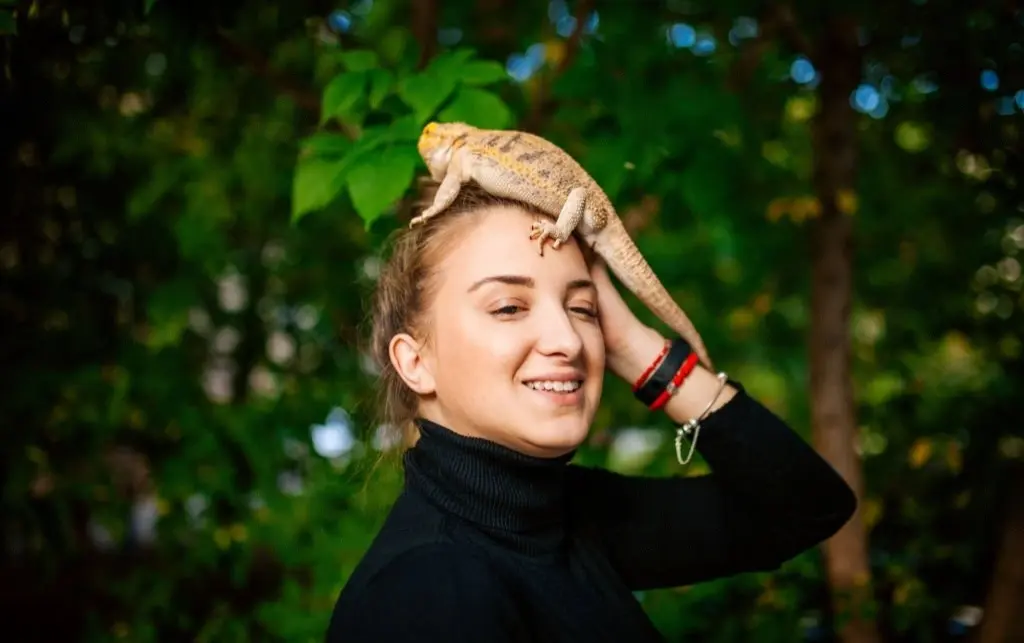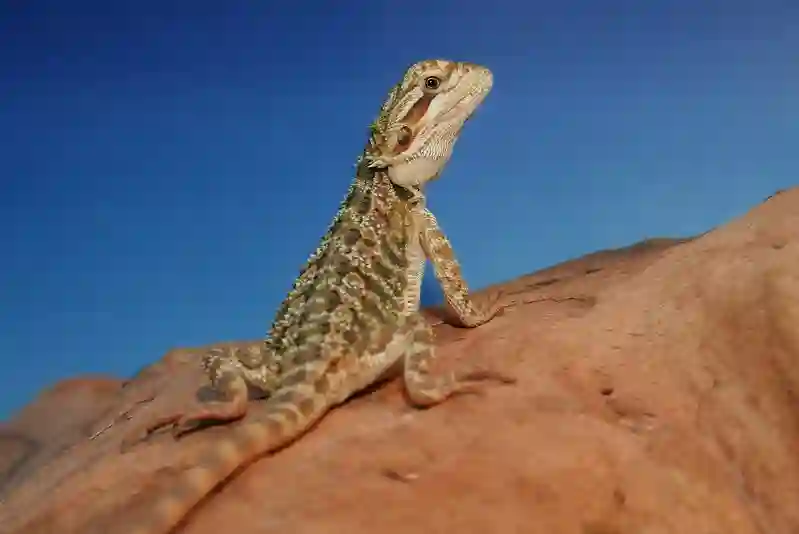Have you ever noticed their behavior when they’re around other beardies or humans?
Well today, I’m going to explain the various ways that our scaly friends greet one another.
Bearded dragons are incredibly social creatures and need interaction with other reptiles and people in order to stay happy and healthy. When they come across something new, they’ll often display a variety of body language signals as a way of saying “hello”. Some common signs include head bobbing, arm waving, tail wagging, and vocalizing.

In this article, we’ll explore all the interesting behaviors associated with how bearded dragons say hello and what this means for us as owners. Stay tuned!
Understanding Bearded Dragon Body Language
Bearded dragons are fascinating creatures, and understanding their body language is a great way to bond with them.
As a way of communicating with each other, bearded dragons usually make subtle movements and behaviors.
In order to show each other that they are aware of one another, two bearded dragons may bob their heads, wave their front legs, or do whatever it takes to signal their recognition. When two bearded dragons greet one another, their vibrant colors serve as an invitation to communicate with each other.
These reptiles also use head-bobbing as a sign of submission or dominance. They might make jerky head motions upwards until the other animal backs away or retreats entirely.
Bearded Dragon Vocalizations
In the previous section, we learned how to read the body language of a bearded dragon. Now let’s explore their vocalizations!
While they may not speak words as humans do, bearded dragons have various ways of communicating with us through sounds.
To understand your pet better, here are some common vocalizations that you should be aware of:
- Hissing: When a beardie hisses, it typically means that it is scared, irritated or threatened by something. It could also mean that it wants you to back off from its territory.
- Chirping/Clicking: This sound is often made during courtship displays between two bearded dragons and can indicate excitement or pleasure. Additionally, clicking can signal submission in response to another beardie’s aggression.
- Puffing Up Of The Beard: As mentioned earlier, this action signals dominance and territoriality among other beardies but can also communicate happiness when done around people who the lizard trusts.
No matter what type of communication your bearded dragon uses, always remember to treat them respectfully and pay attention to their needs so they know that they are loved!
Social Interactions

Bearded dragons are social animals and enjoy interacting with their owners.
Bearded dragons may greet you by bobbing their head or wagging their tail in a friendly way when they see you, which is an indication that they’re happy to see you. Other signs of affection include licking your finger or hand when you offer it for them to smell.
Bearded dragons can also become quite attached to their owners – having been known to follow people from room to room!
When introducing two bearded dragons, Make sure the environment is calm and quiet and start off with short interactions before leaving them alone for longer periods of time.
It’s best if both animals have had ample time to explore each other without feeling threatened. If one dragon appears overly aggressive, then separate them immediately until they feel comfortable enough around one another.
Conclusion
Bearded dragons are fascinating creatures that can communicate with their owners through a variety of signals. By understanding the different ways these reptiles say “hello”, you can develop stronger bonds and better care for them.
Understanding your beardie friend’s behavior is like trying to learn a new language – it takes time and patience!
By observing your bearded dragon closely and taking the time to interpret its behaviors, you’ll soon find yourself conversing fluently in reptile speak!
